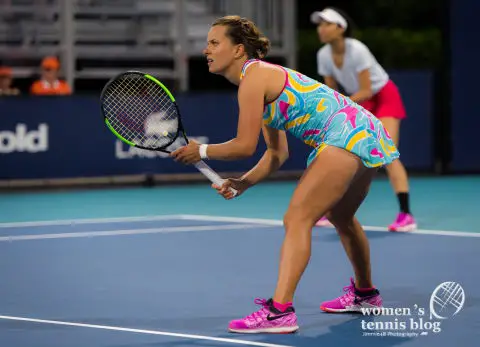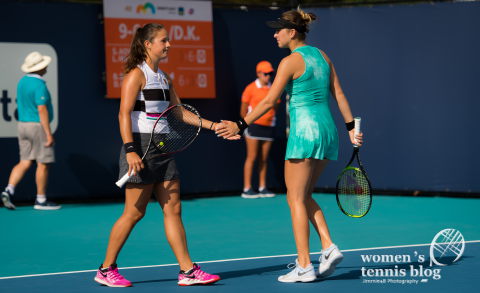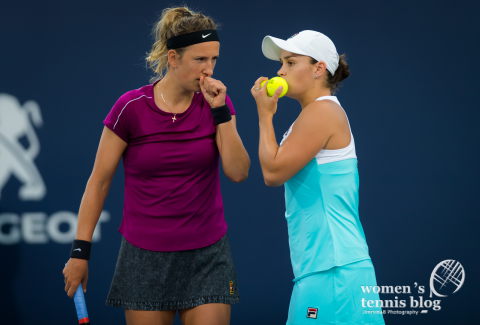This is a guest post by our monthly contributor, Will Boucek, a former college tennis player from Austin, with over 20 years of experience playing and coaching. Will specializes in doubles and was 4.5 men’s and mixed doubles champion in Texas in 2017. Fascinated by the strategy of doubles, Will shares his valuable insights on his website The Tennis Tribe. In this month’s column, Will is guiding us to a more intelligent game and better synergy with our doubles partner.

Good tennis is like a chess game with momentum swings created by tactical and strategic adjustments. This is obvious at the pro level, like when you watch Naomi Osaka step inside the baseline for her groundstrokes after dropping a set playing behind the baseline.
However, at the club level, many players don’t make these strategic adjustments during a match. Instead, they go out and play their style regardless of the opponent. If their style is better, they win, if not, they lose. This should change and here’s how to do it.
Ask more questions between the points
Asking and answering questions that will get your strategic tennis muscle moving can help you improve your chances of winning during a match. Most people don’t do this, in part, because they don’t know the right questions to ask.
On the doubles court, here are a few questions I like to ask myself. Some of these questions can work in singles as well.
- Could I have done anything differently on that point to win it earlier in the rally?
- Should I have hit the ball to a different location?
- Could I make any changes to my position or movement that would make the opponent less comfortable?
- How can I put myself or my partner in a better position to amplify our strengths and hide our weaknesses?
- Who is the weakest player on the other side of the net? What is their weakest shot?
You should be asking yourself questions after every point, game, and set. I actually like to keep a list of questions in my tennis bag to review on changeovers.
Answering questions like these will force you to start thinking more strategically and make those in-match adjustments to help you win.
Talk with your doubles partner
When I asked pro doubles players and coaches what the #1 mistake they see tennis players making in doubles, communication came up over and over. Talking with your partner can help you create new strategies and gameplans that you wouldn’t have come up with on your own.
A few topics to discuss with your partner.
- The other team’s strengths and weaknesses;
- Your own strengths and how to double down on them;
- Serving formations, locations, and strategies.
The better you know your partner, the less you’ll have to communicate verbally. You may start using hand signals.
However, on any pressure points and during tiebreakers, I still recommend talking between every point on your serve. Telling them exactly where you’re going to serve will help you focus.

Don’t play “mindless tennis”
Many players at the recreational and club level play mindless tennis. Mindless tennis is when you step onto the court, play your game, and NEVER make adjustments.
Let’s say you miss your 3rd volley in one game. A mindless player will practice their technique after they keep missing. They think there’s something wrong they are doing technically. This might be true, but you’re unlikely to fix your volley technique during a match.
A smart player will recognize that they missed the 3rd volley of the game because they’re approaching to the opponent’s forehand side (strength). They’ll start hitting the approach shot to the opponent’s backhand, and get easier volleys!
So simple!
When they start losing, mindless players don’t change their strategy, they just try harder. Then after they lose, they say it was just a bad day. Don’t be like that.
Start asking questions and working with your partner. You’ll become a smarter player and tennis will become more fun – like a puzzle or game of chess.
MORE DOUBLES TIPS FROM WILL BOUCEK:








